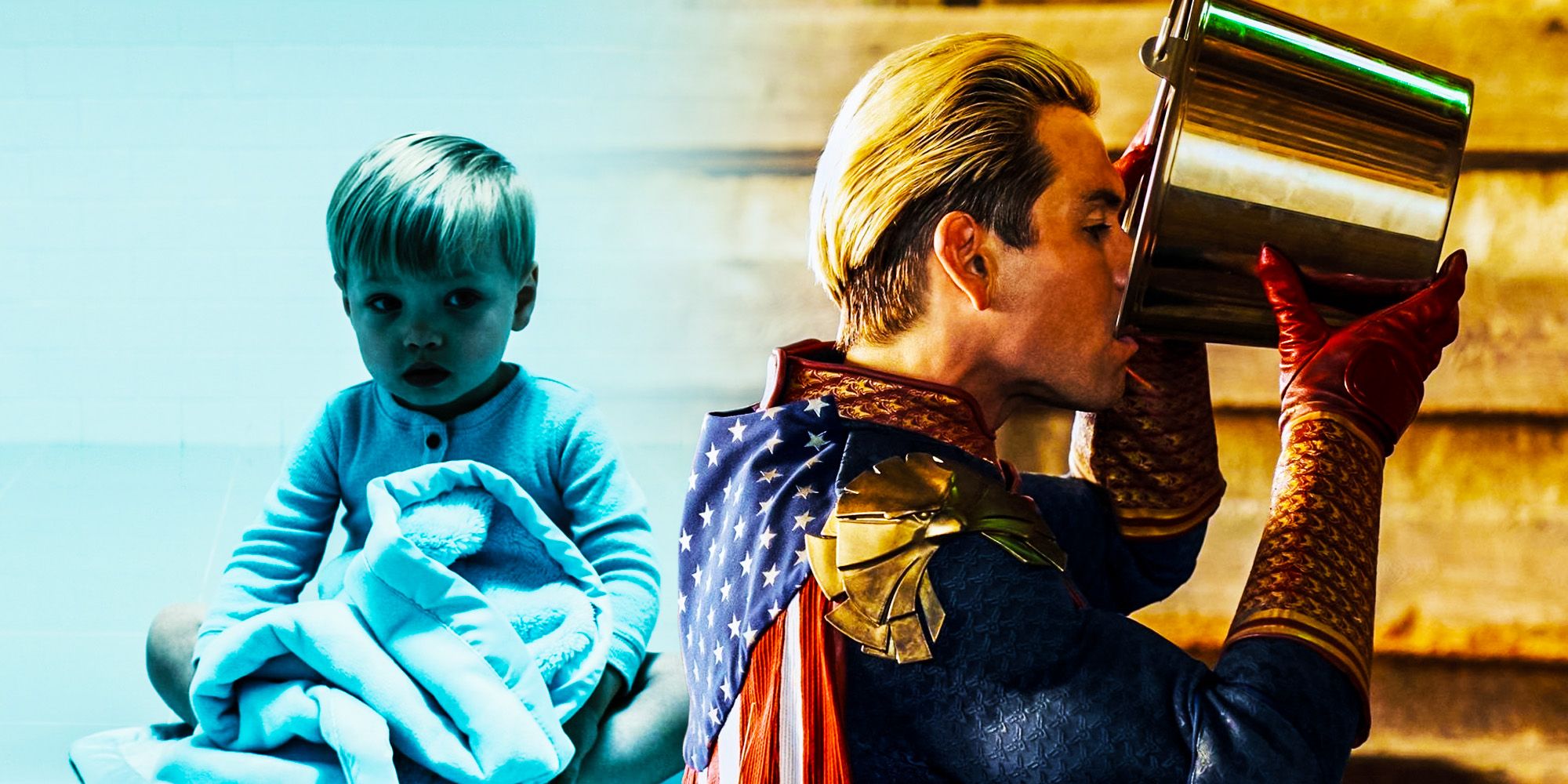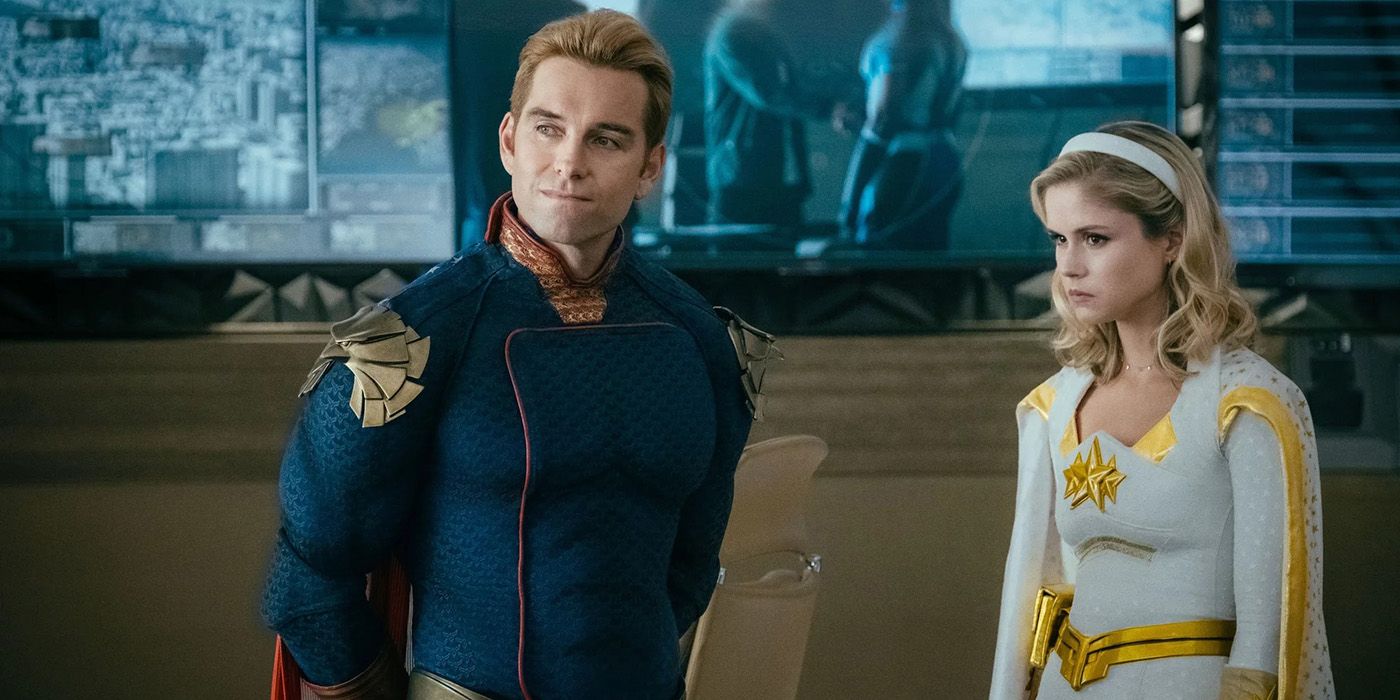Homelander's creepy obsession with breast milk in The Boys can be explained by his tragic backstory. At the end of The Boys season 3, Homelander showed his brutal side to the public by murdering an onlooker who threw something at his son. Homelander's erratic actions throughout the three seasons have shown the audience that Homelander is a character to keep an eye on. However, Homelander's impulsive behavior, including his obsession with breast milk, and violent acts are tied to his trauma.
Homelander's trauma has manifested in different disturbing ways, most notably in his relationship with Madelyn Stillwell (Elizabeth Shue) in season 1. The Boys introduced Homelander's milk obsession with Stillwell cradling Homelander like a baby as he drank from her breasts. The mother-son sexual dynamic was unhealthy on multiple levels and while Stillwell enjoyed a position of power over the super-powered Homelander, she ultimately couldn't control someone as deeply traumatized as Homelander was. Stillwell met her demise at Homelander's hands, showing how impulsive and fickle Homelander and his affections could be.
Homelander's obsession with breast milk goes beyond a quirky character trait. His addiction to breast milk is a symptom of growing up in the Vought lab where he never had access to motherly affection and the opportunity to form a loving bond at a young age. Homelander's trauma manifested in his kink for breast milk and need for a dominant mother figure. In The Boys season 1 Madelyn Stillwell satisfied his desire for a mommy figure but Homelander's experimental rat-in-a-lab upbringing damaged him too greatly. His lack of ever learning how to form meaningful emotional bonds with others, trust issues, and fragile ego became deadly when mixed with his superpowers.
Homelander's Mommy Issues Stem From His Absence Of Childhood Affection
Other The Boys characters, such as The Deep, have approached their issues by dominating women. However, Homelander openly looked for a dominant female figure, such as Queen Maeve and Stormfront. Despite his toxic masculinity, Homelander supported the strong women in his life because they were the mother he never had. Unfortunately, Homelander was too traumatized to be in a healthy relationship with any of these women. If he had been allowed to express his emotions in a healthy way, he likely could've healed to some degree. However, he never had that opportunity, having been raised and treated as a science experiment rather than as a child in need of nurturing and emotional connection.
Homelander's actions are too monstrous to be redeemed, but that doesn't mean there isn't logic to his actions. Vought's experimental practices created monsters but disguised them as heroes. As a result, Homelander has been one of the most fascinating characters to watch. From the murder of his makeshift mother figure Stillwell to the disemboweling of Black Noir, Homelander's actions have all stemmed from his traumatic background. With Homelander, The Boys illustrates how denying a human being love and affection can have monstrous consequences.


